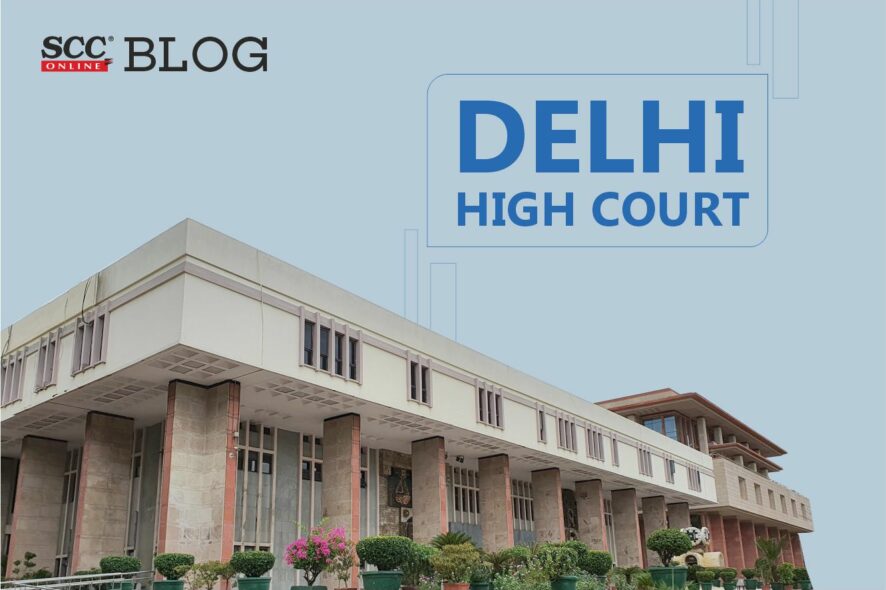Delhi High Court: In a case filed by the petitioner seeking legal representation for an enquiry regarding allegations of sexual harassment at workplace, before the Internal Complaints Committee by a person of legal background, Sanjeev Narula J., held the petition to be non-maintainable as the prayer sought cannot be allowed considering an express bar to legal representation under Rule 7(6) of Sexual harassment of Women at Workplace (Prevention, Prohibition and Redressal) Rules, 2013.
The Petitioner is facing an enquiry before the Internal Complaints Committee/Respondent No. 2 [‘ICC’] of GIZ India constituted under provisions of the Prevention of Sexual Harassment at Workplace Act, 2013 [‘POSH Act’] and the Sexual Harassment of Women at Workplace (Prevention, Prohibition and Redressal) Rules, 2013 (Rules).
An e-mail dated 23-09-2022 received from ICC wherein his request to engage an advocate was declined on account of an express bar to legal representation under Rule 7(6) of Sexual harassment of Women at Workplace (Prevention, Prohibition and Redressal) Rules, 2013. Assailing this, the petitioner filed a petition challenging the vires of Rule 7(6) of Rules, 2013 as the same is in contravention to Article 14, 19 and 21 and is also against the principles of natural justice.
However, he withdrew the petition and filed the instant petition praying to allow the petitioner to be represented though any other persons of the Petitioners choice other than the legal practitioner.
Counsel for petitioner submitted that the petitioner should be entitled to be represented by a person who can conduct cross-examination of the complainant to the Petitioner’s satisfaction. It further submitted that with a harsh consequence such as termination, evidencing mechanism thereof should necessarily require that Petitioner should have a right of representation.
Counsel for respondent submitted that that there is no provision under the POSH Act or Rules which enable the Petitioner to be represented through any next friend, and hence no such relief can be granted.
The Court noted that a successful challenge to the vires of Rule 7(6), before the Division Bench, would have entitled the Petitioner to be represented through a legal practitioner, or a dilution thereof would have allowed for a next friend. However, in the instant petition, the court is bound to respect the law as it stands today vis-à-vis Rule 7(6).
The Court further noted that the intent of Rule 7(6) is to disallow a legal practitioner from representing the parties at any stage of the proceedings and it cannot be construed in the manner the petitioner is seeking to do in the present case.
On query by the Court regarding non-disclosure of who, in particular, petitioner seeks to engage for his proceedings, counsel for petitioner submitted that although the name of the next friend has not been disclosed, however it would be a person with a legal background or a legal understanding, so that he can conduct cross-examination, the Court remarked, “it is indeed baffling that the Petitioner, who is himself a law graduate, which in general parlance would mean an ‘advocate’, wants to take assistance of a next friend, who has legal background but is not registered as an advocate.”
Thus, the Court held that once the petitioner has given up on the challenge to the provision, he cannot be permitted to seek an alternate prayer in absence of any enabling provision under the Act or Rules which entitles the Petitioner to be represented, as the bar under Rule 7(6) would certainly apply.
[X v. Union of India, 2022 SCC OnLine Del 3489, decided on 14-10-2022]
Advocates who appeared in this case :
Mr. Maninder Singh, Senior Advocate with Mr. Siddhant Asthana, Ms. Aekta Vats, Mr. Chhetarpar Singh & Ms. Anshika Batra, Advocates for the Petitioner;
Ms. Monika Arora, CGSC with Mr. Shivam Raghuwanshi & Mr. Yash Tyagi, Advocates for UOI.;
Mr. Anil Bhat, Advocate for R-2.
*Arunima Bose, Editorial Assistant has put this report together.







